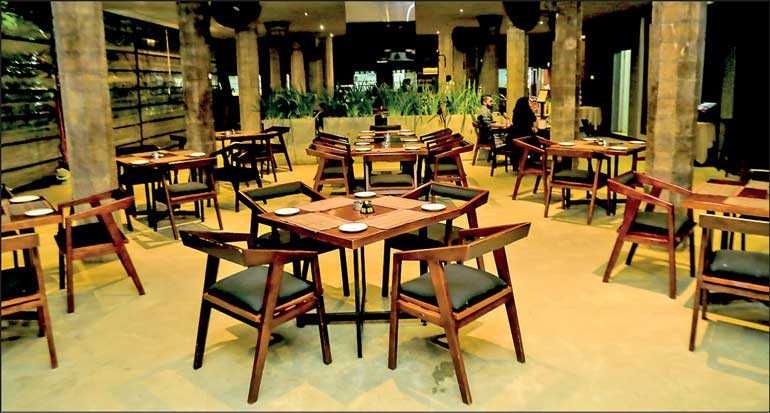Saturday Feb 14, 2026
Saturday Feb 14, 2026
Friday, 1 January 2021 00:00 - - {{hitsCtrl.values.hits}}

From the beginning, our social clubs were a leap of faith. When all around them, public as well as private sector administrators were foundering, establishments degraded, institutional values distorted; to envision institutions in the mode of British Club culture thrive in this sultry clime, needed faith, indeed
The word is that several major social clubs in Colombo, in serious financial trouble, are now under the management of State agencies. Going by what is on the grapevine, it seems nearly all clubs are in  crisis mode, their income inadequate to meet even the basic expenses, a challenging situation further compounded by the perfunctory management style of most committees.
crisis mode, their income inadequate to meet even the basic expenses, a challenging situation further compounded by the perfunctory management style of most committees.
These clubs, never designed for profit-making, face a daunting reality of mounting liabilities, pointing to eventual insolvency. Only a drastic step could stall the inevitable, like a fireman rushing from one bushfire to another, the Government has intervened to stabilise a threatened social necessity; yet the situation with our sporting bodies and social clubs is so shaky, no sooner one fire is brought under control another lights up, the fireman will soon be exhausted.
Venturing into untrodden paths of social club management, the State assumes multiple roles, a leviathan – rule maker, regulator, administrator and operator. One arm of the State leases the land to a social club, another regulates it, the next taxes it and when the club is failing, yet another State agency moves in to take over, proceeding to run it.
From the beginning, our social clubs were a leap of faith. When all around them, public as well as private sector administrators were foundering, establishments degraded, institutional values distorted; to envision institutions in the mode of British Club culture thrive in this sultry clime, needed faith, indeed.
But the system was fundamentally sound, and could endure repeated mishandling; despite the confusing of its essence, constant abuse of its facilities and the clumsiness of the mimic; the clubs endured, some even crossing the century line.
Except for a very few, most of our clubs today are dilapidated, managed without any refinement or taste. Walls badly in want of a paint, falling plaster, broken windows, garbage strewn about, the smell of rotting food, wet unwashed toilets, stray cats and dogs, are some of the sights that meet one’s eye on entering these places.
Social clubs are failing not only because of the insouciance of the committees. Cash-strapped municipal authorities are demanding their annual rates (taxes) which the clubs simply cannot meet. Due to the nature of their facilities, clubs need to occupy substantial properties, and in general these are situated in the more expensive areas of the city.
The rates on the property keep going up, but the club income is limited. Ignoring their recreational aspect, the municipality demands the club increase its commercial activity; sub-lease sections of the property, look for sponsors, install hoardings.
Gradually, a crass business culture overcomes the committee; a member is judged not for his personal qualities but the size of his wallet. The only criteria to join our so called prestigious clubs is that the applicant is well heeled; whether he is a blackguard, bribe-giver or blackmailer, is immaterial.
In this way of looking at things, kick-backs and commissions are standard practices. The club is no longer a meeting place for like- minded gentlemen, but a gathering of social climbers of the worst kind. Under this ethos, it is acceptable for committee members to drink on club account, not settle one’s bills and abuse its facilities.
We are described as a hierarchical society; in this country there will be a pecking order even to get on the Titanic. Perhaps holding office – it doesn’t matter what office – helps to overcome a gnawing sense of worthlessness.
There is a desperation in the tone as he recites old school connections, boasts club memberships, and namedrops. He plays golf and drinks single malt whisky, reducing both in stature!
This is a culture which discourages most members from serving on the committee, while enabling a particular type to thrive. Neither scholar nor gentleman, he has amassed wealth, unaccountable and unexplained; a smooth talker, corruptor and facilitator. In the diminished society he moves in, these are no impediments, he has money after all!
Even in an institution designed on democratic principles, members paying the same subscription and enjoying the same rights, office is actively sought, and often turned into advantage. One of the most vulgar symbols of our club culture is the loud and near violent campaigning for office on the club committees.
Holding office is considered prestigious and profitable, the method of acquiring office matters not. Election times are an open season for abuse and slander. Once elected, the guy settles in for an indefinite stay, the membership has neither the spirit nor the capability to evolve.
After election to office, the new committee will begin with noticeable enthusiasm, a wall may be painted, kitchen contract renegotiated, some urinals replaced, but all too soon it is back to the sorry reality.
There is no question that social/recreational clubs are an essential part of a modern society, particularly in urban centres. In today’s world, clubs are no luxuries, the liveability index of a city improves with the availability of the facilities they offer.
Sri Lanka faces a dilemma here. While the institutional concept cannot be faulted, it has been shown that our clubs, for various reasons, have failed to throw up the necessary managerial crust. By ‘managerial’ we don’t mean just bookkeeping. The idea of management includes leadership, providing inspiration, and being role models; something that can be wished for in every sphere of this country!
With the State moving into the management of these institutions, there is a fundamental change occurring. We are not certain what the long term goal is, but from what is now happening these clubs are being converted into plush sporting/recreational facilities, State sponsored, centrally managed.
No longer are they associations of equals, with voting rights and management responsibilities. While it was member managed, it was possible to ascertain the degree of the club’s losses and point the finger at the committee. But when the owner/manager is the State, who decides the return or the lack thereof, on its investment?
As a country, in every field and in every aspect, we blunder from crisis to crisis.
But should we always rush in, where the angels fear to tread?